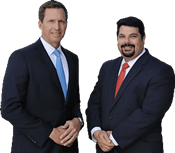I want to discuss a significant shake-up in the investment world that unfolded on February 3, 2024. iCap Enterprises, known for their work in real estate investments, found themselves on rocky grounds, declaring Chapter 11 Bankruptcy. This event didn’t just affect iCap’s well-being; it sent shockwaves through their investors’ finances as well. Central to this financial maelstrom is broker Thomas Burgess Hamlin (CRD#: 2208505), who’s currently working with Somerset Securities, Inc., in Portland, OR. His story is a stark reminder of the dangers bound up in inappropriate investment advice and the lasting harm it can cause to unsuspecting investors—particularly those involved with private placements.
Broker’s Path to Controversy
I’ve been tracking Hamlin’s career since he entered the securities industry in 1992. His journey saw him in roles at several firms, including Advantage Capital Corporation and Raymond James Financial Services.
The Unfolding of Unfitting Investment Recommendations
Records from the Financial Industry Regulatory Authority (FINRA) show Hamlin tangled in a customer dispute as of December 2023. This surfaced after an investor acted on his advice to buy into iCap Equities private placement, which later went bankrupt on September 12, 2023. The aggrieved customer is asking for $168,000 in damages, and they’re still waiting for resolution.
Hamlin also faces four prior complaints, each echoing similar circumstances: alleged unfitting advice centered around iCap Equities private placements that all ended in bankruptcy. With damage claims ranging from $285,000 to $504,476, these allegations raise red flags about Hamlin’s commitment to FINRA’s standards for fair practices.
 (AD) Lost money because of bad financial advice or outright fraud? You may get it back by filing a complaint. Haselkorn & Thibaut has 50+ years of experience and a 98% success rate. Don’t delay if you’ve suffered losses. (AD) Lost money because of bad financial advice or outright fraud? You may get it back by filing a complaint. Haselkorn & Thibaut has 50+ years of experience and a 98% success rate. Don’t delay if you’ve suffered losses. Call Haselkorn & Thibaut at 1-888-784-3315 for a free consultation, or visit InvestmentFraudLawyers.com to schedule. No Recovery, No Fee. |
A Close Look at iCap Enterprises and its Debacle
iCap Enterprises was all in on private placement offerings, mainly in the real estate sector. Unlike standard public offerings, private placements aren’t traded on the usual exchanges. Operating under Regulation D of the Securities Act of 1933, these offerings dodge the more intense SEC disclosure demands, cranking up the risk for investors and brokers alike.
For iCap, skirting these disclosure rules meant that investors were left in the dark about the company’s crumbling finances, which abruptly led to bankruptcy. The investors were left holding the bag, while it was later discovered that iCap’s funds were mismatched—underscoring their financial quagmire.
The Right to Securities Loss Recovery
This whole iCap fiasco brings to light the perils tied to private placements and the crucial role due diligence plays. As outlined in FINRA Notice to Members 10-22, it’s the responsibility of brokers and advisors to vet private securities before suggesting them to clients, ensuring the investments are fitting both generally and client-specifically.
Investors harmed by inappropriate advice have every right to seek recovery through FINRA arbitration. It’s a complex process, but with the right knowledge and legal guidance, they stand a fighting chance.
The rise of private placements in the investment scene is undeniable, but iCap’s downfall, coupled with Thomas Hamlin’s alleged missteps, serve as a cautionary tale about the high stakes involved. As Warren Buffett aptly put it, “Risk comes from not knowing what you’re doing.” And as those touched by the downfall of iCap’s empire seek redress, they’re reminded of the importance of due diligence and the risks that can lurk in lesser-known investment avenues.
For those whose finances have been hurt by iCap’s collapse, the road to recovery might be long, but it’s not a dead end. It’s essential, however, to make sure those who guide you financially remain transparent. And if you ever have doubts about your advisor’s background, check their history through FINRA’s BrokerCheck—it’s a free tool to help you review a broker’s track record, and you can look up [Thomas Hamlin’s FINRA CRD number here](https://brokercheck.finra.org/).
Investing can carry considerable risks, and the unfortunate truth is that some financial advisors don’t always prioritize clients’ best interests. In fact, a shocking financial fact is that some advisors have rates of misconduct as high as 15%, according to a study by the University of Chicago and the University of Minnesota.
Through all of this, information remains the most valuable currency. Keep learning, keep questioning, and find those who will align with your financial ambitions with integrity and expertise.


